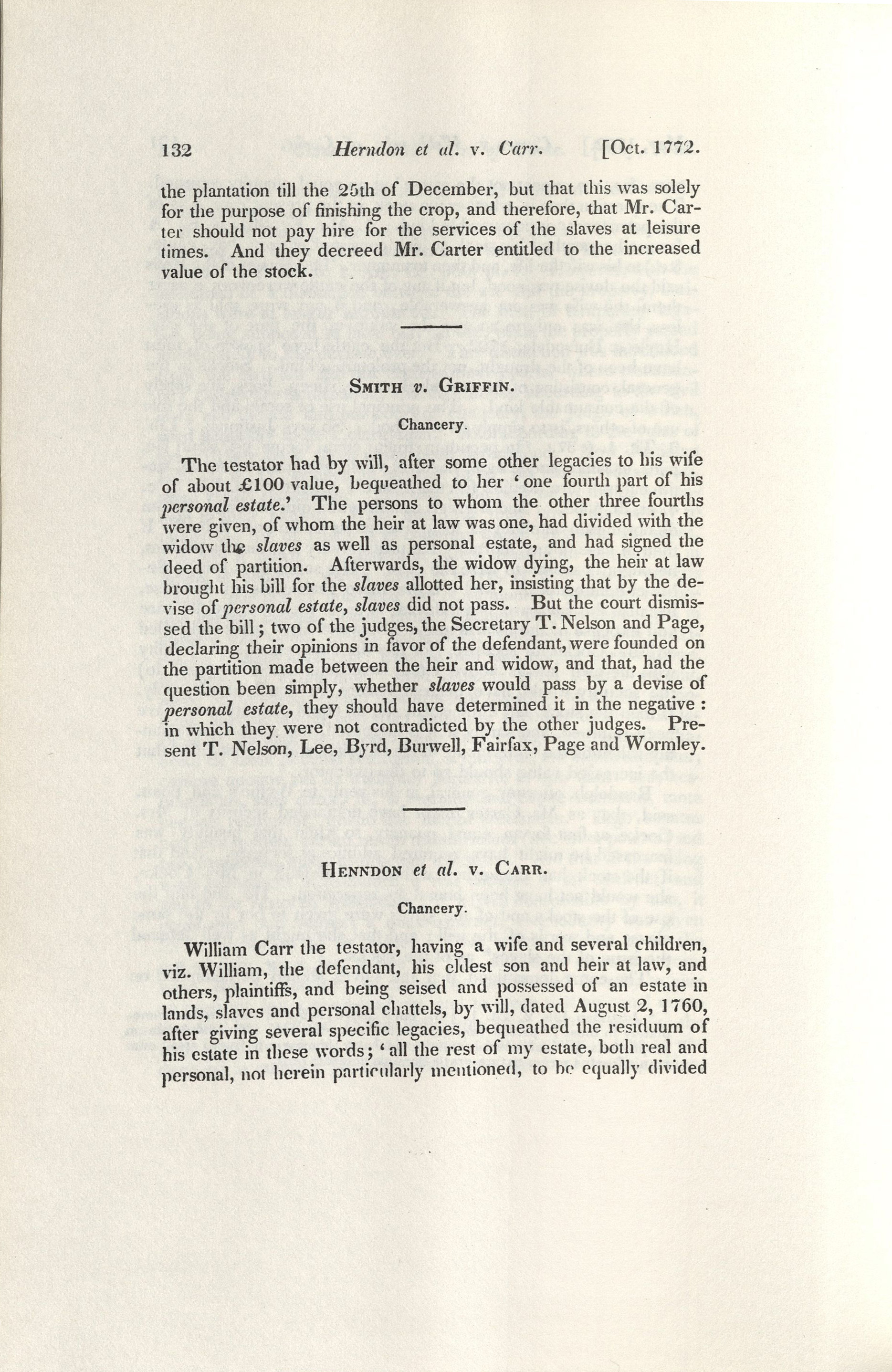Herndon v. Carr

Herndon v. Carr, Jefferson 132 (1772),[1] was a will dispute over slaves that William Carr inherited before his death but before he could amend his will. The case turned on whether the slaves could be devised by the original will or whether the testament did not include them.
Background
George Wythe, for the plaintiffs argued that the slaves could pass. He argued that slaves are personal property and thus can be passed by will even though they were not in the possession of the devisor at the time he made the will. Wythe argues that finding that the slaves were not devisable in this way would have negative repercussions because it would mean that a devisor would have to make a separate will every time a slave was born. This, he stated, would result in a problem of partial intestacy.
Edmund Pendleton, for the defendants, argued that the slaves were not included in the original will. He argued that nothing in the will indicates that the devisor contemplated that he would own the slaves. According to Pendleton, if the slaves were not in the devisor’s mind at the time he made the instrument, then they could not pass. He rebutted Wythe’s argument of partial intestacy by showing that if a mother has been devised, then the children would be as well. Pendleton cited Harrison v. Harrison to support his argument.
The Court's Decision
The court found for the defendant and decreed that the slaves did not pass under the will.
See also
References
- ↑ Thomas Jefferson, Reports of Cases Determined in the General Court of Virginia, from 1730 to 1740 and from 1768 to 1772] ed. Thomas Jefferson Randolph. (Charlottesville: F Carr and Co., 1829; Buffalo, N.Y. : W.S. Hein, 1981): 132.